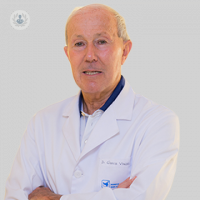Hypercholesterolemia, high cholesterol and bad
Written by:Hypercholesterolemia is the most frequent dyslipidemia and exists when the blood cholesterol level exceeds 200-240 mg / dl. It is an important cardiovascular risk factor, since it represents 50% of mortality in developed countries, and leads to an increase in LDL cholesterol , known as 'bad', and a decrease in HDL , the 'good'. Triglycerides, to a lesser extent, also increase with h hypercholesterolemia.
There are three different types. They can be primary if they are familiar or genetic, or secondary to other processes that alter the metabolism of lipoproteins , and mixed or of multifactorial origin.
Symptomatology
Hypercholesterolemia does not have clear symptoms during a time that can be prolonged, although we can distinguish some risk factors that can cause it. Overweight , obesity and its metabolic complications, such as diabetes mellitus , high blood pressure or stressful situations and low physical activity, are just some of these dangerous factors.
A high cholesterol or hypercholesterolemia can lead to arteriosclerosis, an alteration that can block blood vessels with reduced blood flow. It is also linked to the metabolic syndrome, with an increase in the abdominal perimeter, and is also accompanied by an increase in cholesterol or hyperuricemia .

Treatment
First of all, non-pharmacological measures should be applied to reduce risk factors : lower excess weight, quit smoking and reduce or eliminate alcohol. In addition, it is important to practice physical exercise and limit stressful situations. Only after 3-6 months of dietary measures without good results can be recommended pharmacological treatment based on statins.
These dietary measures to which we mentioned respond to the increase of vegetables and the reduction of saturated fats and excess fat. Losing 10% of excess weight means a reduction of cardiovascular risk by 50%.


